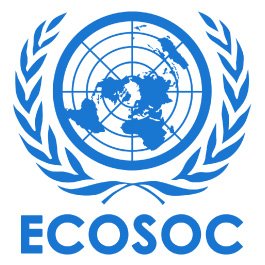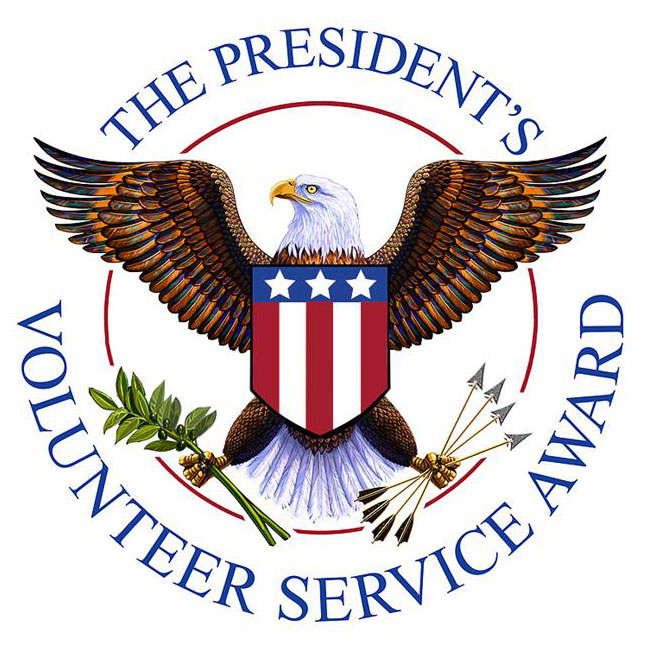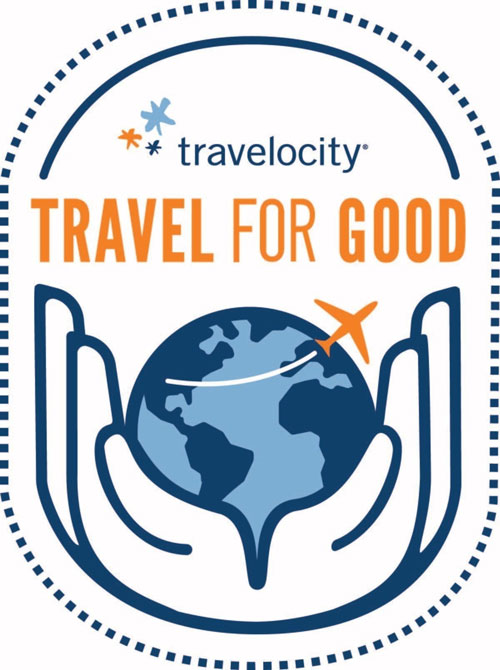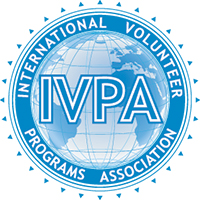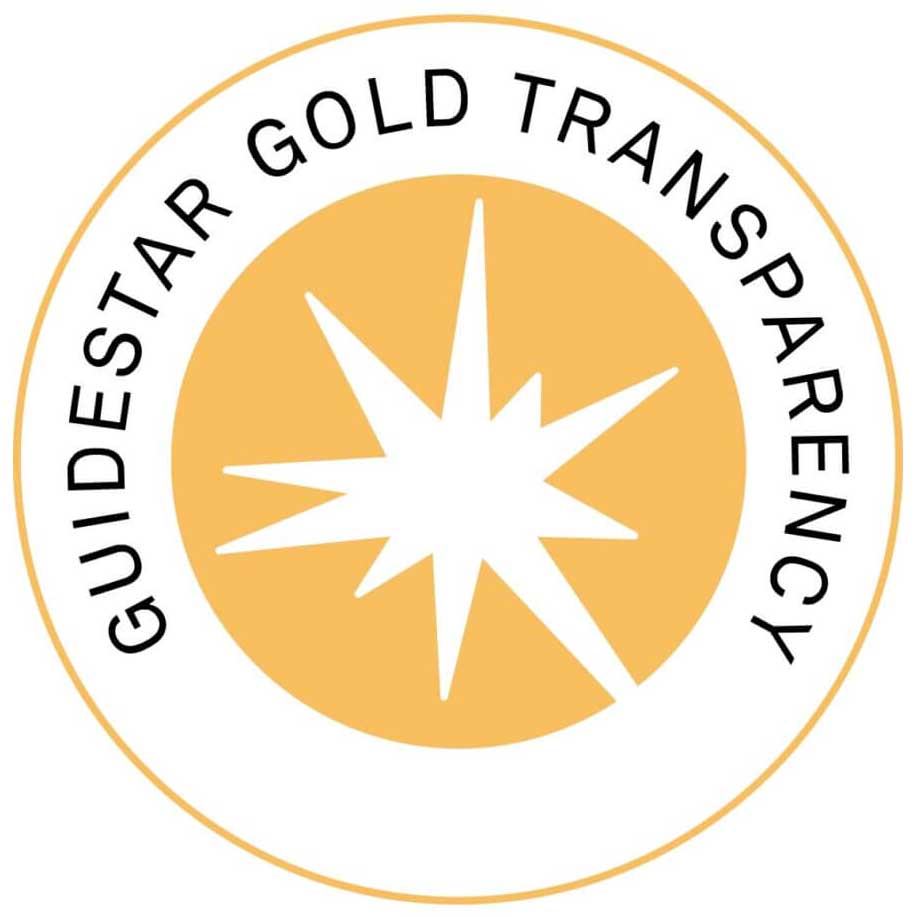Featured Articles
Featured Articles
Featured Articles
Writer Christopher J. Gearon dug deep, examining the options and motivations behind the volunteer vacation phenomenon while noting that even in times of financial uncertainty, people are still seeking out unique, rewarding vacation opportunities around the world. Writing in U.S.News & World Report, Mr. Gearson features Globe Aware and its unique, one-week volunteer program:
If you have less vacation time, you might try Globe Aware, which hosts one-week volunteer programs around the world. About 15 percent of the group's roughly 4,500 vacationers are families. "We're one of the few nonprofits that allow" them, says spokesperson Catherine McMillan. Families with kids as young as 6 months travel to such places as Peru, Costa Rica, and Ghana for roughly $1,250 a person, plus airfare. Volunteers build recycling areas, clear paths in the rain forest, make cheese, milk cows, and take part in many other projects. "It's kind of like a vacation that needs you," says McMillan.
Volunteer vacations are not for those who like to be pampered. But if experiencing a new culture, "meeting the people, working with the families, and feeling like what you do matters," they are a great option, King says. It's also less expensive than a standard vacation. King went to India for two weeks for $1,200, plus airfare, for example. And thanks to a handy Global Village widget, she solicited donations from friends and colleagues that helped defray some of her costs.
Mr. Gearson’s article, in its entirety, is below:
How to Choose the Best Volunteering Option
Volunteering is up, here's how to find the best fit for you
By Christopher J. Gearon
October 26, 2010
 Though the economy is hurting, volunteering in the United States jumped last year at the fastest rate in six years. At least 63 million gave of their time and energy. "What we're seeing is the depth of the American spirit and generosity at its best," says Patrick Corvington, CEO of the Corporation for National and Community Service, the federal agency that is the nation's largest grantmaker supporting service and volunteering. Many organizations are responding to the demand by offering more service options, creating leadership positions for volunteers, and providing virtual service opportunities to appeal to baby boomers, retirees, and young people.
Though the economy is hurting, volunteering in the United States jumped last year at the fastest rate in six years. At least 63 million gave of their time and energy. "What we're seeing is the depth of the American spirit and generosity at its best," says Patrick Corvington, CEO of the Corporation for National and Community Service, the federal agency that is the nation's largest grantmaker supporting service and volunteering. Many organizations are responding to the demand by offering more service options, creating leadership positions for volunteers, and providing virtual service opportunities to appeal to baby boomers, retirees, and young people.
"Volunteering patterns have changed," says Barb Quaintance, who heads up volunteer and civic engagement at AARP. Boomers, in particular, want more say in how they serve. In 2009, AARP started Create the Good, a network where people and nonprofits can connect around volunteering, "whether you have five minutes, five hours, or five days," says Quaintance.
The challenge for all volunteers is finding the best fit for themselves. "Look to creditable organizations or ones you know," Quaintance recommends. Regardless of your tastes, temperament, or availability, a wide range of opportunities can be found, each offering its own rewards.
Disaster Relief
For those who seek an adrenaline rush and have a flexible schedule, emergency response groups may be an appealing option. The largest is the American Red Cross, which has more than 90,000 disaster workers, 93 percent of whom are volunteers. (Training is conducted at each of the 700-plus chapters.) Some 55,000 volunteers can be deployed nationwide; the rest can be mobilized only within their home area. "Volunteer in your local community first," advises Anita Foster, chief communications officer for the American Red Cross in Dallas. "Getting a call at 3 a.m. to help a family" whose house has burned "is a great way to get your feet wet."
When it's time for the big leagues, the Red Cross depends on volunteers to pick up at a moment's notice. Eleanor Guzik, 71, a nurse practitioner from Ventura, Calif., has been deployed to a number of disasters—a tornado in Georgia, floods in North Dakota, and wildfires in her home state. Helping others when they need it most "is extremely satisfying," Guzik says.
Among other groups providing disaster relief are faith-based organizations like the Salvation Army, which assigns a small subset of its 3.4 million volunteers to emergency response. Since retiring as a Secret Service agent in 1996, Dave Freriks, 71, of Lubbock, Texas, has served as a volunteer at disasters in the American South and West, often for two weeks at a time. His missions have included responding to a fire at a nearby ethanol plant and hurricanes on the Gulf Coast. "It keeps me young, and it keeps me active," Freriks says.
Though the Salvation Army did send volunteers to Haiti after the earthquake in January, it generally responds to U.S. disasters. Volunteers are summoned from the local region to deliver food and drinks to victims and provide emergency shelter, cleanup services, and communications. Catholic Charities USA and Samaritan's Purse an evangelical Christian relief organization, are two other faith-based groups that deploy volunteers when a disaster happens.
A Second Act
The growing trend of skills-based volunteering is "a big change from years past," says Corvington. Baby boomers and others with significant work experience want to segue to new service careers, while nonprofits realize they can leverage this influx of talent to expand their reach. Experience Corps, which has about 2,000 members, connected retired Budget Rent A Car executive Bill Schultz, 65, with an elementary school to help teach children to read in St. Paul, Minn. "You have to find a passion when you retire," says Schultz, who works three days a week at the school and finds it "very rewarding." Lindsay Moore, program spokesperson for Experience Corps, says prospective volunteers must formally apply, submit to a personal interview, and pass a background check. In addition, they must attend an orientation program and get at least 25 hours of training each year.
The largest network for people 55 and older is Senior Corps, which links more than 500,000 individuals to service opportunities in its three programs. The biggest of these, the Retired Senior Volunteer Program (RSVP), has members helping some 60,000 local organizations tutoring and mentoring children, assisting victims of natural disasters, improving the environment, and conducting safety patrols. They also provide business and technical support to nonprofits, including accounting, IT, and fundraising expertise.
Gary LaGrange, a retired Army colonel in Manhattan, Kan., wanted to expand his nonprofit, Help us Learn … Give us Hope. The group collects and ships school supplies and books to children in war-torn nations. RSVP assigned "at least 100 volunteers" and, because of this, more than 400,000 kids have received 520,000 pounds of supplies and 550,000 books, he says.
Senior Corps also offers two other programs: Senior Companions help the elderly maintain independence by assisting them with daily tasks; and Foster Grandparents mentor and tutor children. For other "second act" opportunities, you can try AARP's Create the Good network or its other programs.
An Extended commitment
Got more time? Two full-time gigs to consider include the storied Peace Corps for international posts or the fast-growing AmeriCorps program to serve domestically.
Established under President John F. Kennedy in 1961 to promote goodwill, the Peace Corps has over the years sent nearly 200,000 Americans (who receive three months of training) to serve in 139 countries, from agribusiness workers in Malawi to engineers in Mexico. (Good news for liberal arts grads: Teaching English is in high demand in many part s of the world.) Jennifer Bailey, 29, worked on educational programs in the Dominican Republic, finishing her two-year hitch in May. "I received a world of education and professional work experience with Peace Corps," says Bailey, originally from Ohio, whose tasks ranged from teaching youths about trash management and river cleanup to helping women start income-generating projects. Bailey landed a position as a program analyst in September with the U.S. Department of Housing and Urban Development.
Besides gaining invaluable skills and fluency in foreign languages, Peace Corps volunteers get other perks, including medical and dental benefits, living allowances, student loan help, vacation time, and job placement support. (Check the Web site of the International Volunteer Programs Association for other opportunities to serve abroad.)
If you'd prefer a long-term assignment stateside, you might consider AmeriCorps, which uses volunteers to help address critical needs in education, public safety, health, and the environment. A variety of positions are available, from tutoring young people, assisting crime victims, and building homes to teaching computer skills, restoring parks, and responding to disasters. AmeriCorps plans to expand its ranks from 85,000 volunteers today to 250,000 by 2017.
In general, volunteers sign on for at least a year and can stay on longer if they desire. Dwight Owens, 28, of Collins, Miss., provided practical advice to more than 1,200 people with disabilities on how to manage daily tasks. He also checked that businesses in his area complied with federal laws regarding handicapped access, and helped transition people from nursing facilities and other institutions to their homes. "The program builds character," says Owens, who does all his work from a wheelchair. The former teacher and coach was paralyzed when he was hit by a drunk driver five years ago. The AmeriCorps application process took only a couple of weeks, and while there was some upfront training, Owens was impressed how quickly the program got him out "doing things for people."
Other AmeriCorps avenues include the National Civilian Community Corps, a full-time, team-based residential program for young adults, and AmeriCorps VISTA, focused on helping people out of poverty. All AmeriCorps participants get a modest living allowance, a $5,350 education award to pay for college-related costs (after completing the program), and student loan assistance. While young adults fill most of the ranks, 10 percent of volunteers are 55 or older. (Older adults can transfer their education award to a grandchild or others.) There are three applicants for every position, but you can boost your chances by applying to multiple programs (up to 10) and to rural postings, where there are heavy needs but fewer applicants. Information on all AmeriCorps programs can be found through the organization's main Web site.
Volunteer Vacations
Ever consider combining a vacation with service? After seeing people in need after Hurricane Katrina, "I just wanted to volunteer and do something," says Lisa King, 47, of Arlington, Va., who went to Mexico to build homes with Habitat for Humanity's Global Village program. The experience was so rewarding that King has taken annual, two-week volunteer vacations since. Last February, she helped build a town of modified mud huts in Ethiopia—pouring foundations, erecting the wooden frames, and even tossing mud to obefortify one home's exterior.
Habitat, one of the largest organizers of volunteer vacations, has hundreds of projects around the world involving home construction and renovation, or disaster relief. No experience is necessary, but participants should have "an interest, curiosity, and commitment to serve," says David Minich, Habitat's global volunteer director.
Volunteers pay for their airfare and, on average, about $100 a day to cover building supplies, room and board, and transportation within the country. Since most projects require manual labor, you should be in good health. "I can honestly say that I have never physically worked so hard" or "enjoyed myself so much," says Salli Innes, 57, a schoolteacher from Brookeville, Md., who built houses in Guatemala two years ago. Her husband, Rich, caught a free ride by serving as group leader.
If you have less vacation time, you might try Globe Aware, which hosts one-week volunteer programs around the world. About 15 percent of the group's roughly 4,500 vacationers are families. "We're one of the few nonprofits that allow" them, says spokesperson Catherine McMillan. Families with kids as young as 6 months travel to such places as Peru, Costa Rica, and Ghana for roughly $1,250 a person, plus airfare. Volunteers build recycling areas, clear paths in the rain forest, make cheese, milk cows, and take part in many other projects. "It's kind of like a vacation that needs you," says McMillan.
Volunteer vacations are not for those who like to be pampered. But if experiencing a new culture, "meeting the people, working with the families, and feeling like what you do matters," they are a great option, King says. It's also less expensive than a standard vacation. King went to India for two weeks for $1,200, plus airfare, for example. And thanks to a handy Global Village widget, she solicited donations from friends and colleagues that helped defray some of her costs.
To learn about other volunteer vacations, you can check out Global Volunteers, Idealist.org, and Charity Guide.
Virtual helping hands
Chicagoan Summer Johansson, a 33-year-old student finance adviser, wanted to volunteer but couldn't fit traditional commitments into her schedule. The solution? In 2008, Johansson signed on to the online volunteering service of United Nations Volunteers, which looks for virtual assistance for a wide variety of tasks, including project development, design, research, writing, translation, and coaching. Johansson serves as a tutor and head coordinator with RESPECT University, which offers free post-secondary courses to refugees and displaced persons. She develops the syllabus, lessons, and assignments, then E-mails them to a ground liaison. "I currently have courses running in Afghanistan, Uganda, and Nepal," she says. Overall, the program used some 9,400 online volunteers of all ages in 2009. "All they need is a computer, an Internet connection, and skills," says Elise Bouvet of United Nations Volunteers, "and a commitment to making a real difference to peace and development."
While virtual volunteering may not offer personal one-on-one contact, it's more flexible than other options and is a great "CV enhancer," says Johansson. A number of sites can help you find virtual opportunities, including www.volunteermatch.org, which recruits for more than 74,000 organizations, and the HandsOn Network, an arm of the Points of Light Institute, which represents more than 70,000 corporate, faith, and nonprofit organizations. Finally, DoSomething.org specifically matches young people with service options, over 1,700 of which are virtual.
DIY Volunteering
A fixture in her Wheaton, Md., community, Kathleen Michels is often seen yanking out invasive plants along a local creek, caring for a nearby community garden, or working with groups she had a hand in forming. This includes her neighborhood civic association and a coalition to "push back against the paving of our athletic fields with rocks, plastic, and pulverized tires"—that is, artificial turf, she says.
Ask the National Institutes of Health neuroscientist, wife, and mother why she starts these and other efforts, she simply says: "It needed to be done." Michels, 52, figures she puts in 40 hours a month volunteering.
You can find many valuable tools online to advance your own cause, such as AARP's Create the Good program. It has created a slew of downloadable how-to guides—from organizing river cleanups and holding school supply drives to helping oth ers get good healthcare.
Marlene Ellis, 56, of Arlington, Va., last fall initiated her own food drive for a local food bank. Thanks to an AARP starter kit that provided suggestions, bags for food collection, and fliers to post, Ellis was able to collect 127 pounds of food in about a week. "I was so happy" when she delivered it to the food bank, she says. "It is nice to see how much I can accomplish on my own."
DIY projects can be time-consuming, so Michels recommends bringing in friends and neighbors to help when possible. "People respond to passion, commitment, and reasoned arguments," she says.
The upsides of self-directed work are immediately apparent. It's "usually more intellectually engaging since you are organizing and problem-solving and doing research" on your own, Michels notes. She believes she is testament that even shy people can tackle and solve problems in the community or the world, saying, "Success breeds confidence."
Copyright © 2010 U.S.News & World Report LP All rights reserved.
On Friday, September 17, 2010, Globe Aware was featured in the global edition of the New York Times. Below is the article, including an interview with Catherine McMillan, Globe Aware’s vice president of volunteer communications.
The rise of volunteer tourism: Travelers help out while having fun
In today’s interconnected world, being environmentally responsible has evolved from fringe advocacy to mainstream behavior. Many travelers are also more aware of helping those less fortunate than themselves.
One emerging trend is volunteer tourism, or voluntourism, as it is known. Altruistic visitors partake in such projects as helping in orphanages or schools, teaching English or doing repairs and working on community projects.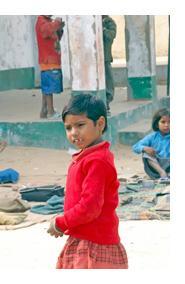 According to the International Ecotourism Society, voluntourism is taking shape as one of the fastest-growing markets in tourism today.
According to the International Ecotourism Society, voluntourism is taking shape as one of the fastest-growing markets in tourism today.
Globe Aware, a nonprofit organization based in Texas, organizes volunteer programs all over the world. ‘‘Our mission is twofold — to promote sustainability through volunteer work projects and to promote cultural understanding,’’ explains Catherine McMillan, Globe Aware’s vice president of volunteer communications. The organization specializes in connecting short-term volunteers with communities that have a variety of needs.
‘‘It isn’t just work,’’ she says. ‘‘As we say here, ‘Have fun and help people.’’’ This type of travel is very different from the normal tourist experience, adds McMillan. ‘‘You get a much deeper, nuanced experience of the culture of the place you are visiting,’’ she points out. ‘‘You create real relationships with the locals.’’ Volunteers experience both the beauties and the challenges that local people face, she adds. In Cambodia, for example, Globe Aware projects range from working with schools and Buddhist monasteries to building and distributing wheelchairs to land-mine victims.
One volunteer, who came to Globe Aware through the Make-A-Wish Foundation, had a condition in which he lost control of the movement in his legs. ‘‘He had experimental surgery and regained mobility, but his wish was to help give the gift of mobility to others,’’ says McMillan. ‘‘He went with his parents to Cambodia last year and built wheelchairs.’’ The 2010 Ecotourism and Sustainable Tourism Conference, held Sept. 8-10 in Portland, Oregon, featured Bruce Poon Tip as keynote speaker.
Poon Tip is the founder of Gap Adventures, an adventure travel company that promotes sustainable tourism. ‘‘We love changing people’s lives through travel,’’ said Poon Tip, ‘‘and ESTC is a perfect forum to help us advance that goal.’’ He explains that the company has proven through initiatives like its voluntourism projects that sustainability and travel needn’t be mutually exclusive.
Smart travel that respects local ecosystems, economies and communities not only provides a more exciting experience for travelers, but also is simply the right thing to do, says Poon Tip.
Hong Kong-based Kit Sinclair, an occupational therapist and ambassador for the World Federation of Occupational Therapists, frequently offers her expertise when she travels. ‘‘When I visit a city, I often offer to provide lectures, meet with students, visit hospitals or clinics, and discuss with staff about their work and their patients,’’ says Sinclair, who has done this throughout China and other parts of Asia.
While visiting Chiang Mai in Thailand a few years ago, Sinclair had a memorable adventure, ‘‘eating a local dish of worms/larvae at a roadside restaurant, heading into the hills for the most fantastic massage at a local hot springs and enjoying the company of local health care professionals, learning their culture, understanding their concerns and having a great time.’’ Another volunteer tourism organization, with offices in Bangkok and Luang Prabang, North by North-East Travel, specializes in trips to Southeast Asia. The company says it ‘‘provides meaningful volunteer work by aiming to empower communities through the transfer of vocational skills and leadership abilities, so they can benefit directly from tourism.’’ North by North-East has facilitated a number of projects in both Thailand and Laos, from educational ones to providing tsunami relief. Responsible tourism, it says, is not imposing one’s culture on others or conforming totally to a local culture. It is about a respectful and equal exchange of values.
Before jumping on the voluntourism bandwagon, says Globe Aware’s McMillan, travelers should make sure that the organization they are working with is legitimate and that they understand how donations are used for the benefit of the community.
‘‘Just handing out funds creates dependency, and you don’t want to do that,’’ McMillan points out. ‘‘Potential volunteers should be able to ask for references from past volunteer participants.’’ For Sinclair, the occupational therapist, the rewards of service ‘‘are in increased knowledge of the region and its health care needs, in sharing global perspectives with my local counterparts and in getting to know some really fantastic people.’’
- Source: New York Times
On Friday, September 17, 2010, Globe Aware was featured in the global edition of the New York Times. Below is the article, including an interview with Catherine McMillan, Globe Aware’s vice president of volunteer communications.
The rise of volunteer tourism: Travelers help out while having fun
In today’s interconnected world, being environmentally responsible has evolved from fringe advocacy to mainstream behavior. Many travelers are also more aware of helping those less fortunate than themselves.
One emerging trend is volunteer tourism, or voluntourism, as it is known. Altruistic visitors partake in such projects as helping in orphanages or schools, teaching English or doing repairs and working on community projects. According to the International Ecotourism Society, voluntourism is taking shape as one of the fastest-growing markets in tourism today.
According to the International Ecotourism Society, voluntourism is taking shape as one of the fastest-growing markets in tourism today.
Globe Aware, a nonprofit organization based in Texas, organizes volunteer programs all over the world. ‘‘Our mission is twofold — to promote sustainability through volunteer work projects and to promote cultural understanding,’’ explains Catherine McMillan, Globe Aware’s vice president of volunteer communications. The organization specializes in connecting short-term volunteers with communities that have a variety of needs.
‘‘It isn’t just work,’’ she says. ‘‘As we say here, ‘Have fun and help people.’’’ This type of travel is very different from the normal tourist experience, adds McMillan. ‘‘You get a much deeper, nuanced experience of the culture of the place you are visiting,’’ she points out. ‘‘You create real relationships with the locals.’’ Volunteers experience both the beauties and the challenges that local people face, she adds. In Cambodia, for example, Globe Aware projects range from working with schools and Buddhist monasteries to building and distributing wheelchairs to land-mine victims.
One volunteer, who came to Globe Aware through the Make-A-Wish Foundation, had a condition in which he lost control of the movement in his legs. ‘‘He had experimental surgery and regained mobility, but his wish was to help give the gift of mobility to others,’’ says McMillan. ‘‘He went with his parents to Cambodia last year and built wheelchairs.’’ The 2010 Ecotourism and Sustainable Tourism Conference, held Sept. 8-10 in Portland, Oregon, featured Bruce Poon Tip as keynote speaker.
Poon Tip is the founder of Gap Adventures, an adventure travel company that promotes sustainable tourism. ‘‘We love changing people’s lives through travel,’’ said Poon Tip, ‘‘and ESTC is a perfect forum to help us advance that goal.’’ He explains that the company has proven through initiatives like its voluntourism projects that sustainability and travel needn’t be mutually exclusive.
Smart travel that respects local ecosystems, economies and communities not only provides a more exciting experience for travelers, but also is simply the right thing to do, says Poon Tip.
Hong Kong-based Kit Sinclair, an occupational therapist and ambassador for the World Federation of Occupational Therapists, frequently offers her expertise when she travels. ‘‘When I visit a city, I often offer to provide lectures, meet with students, visit hospitals or clinics, and discuss with staff about their work and their patients,’’ says Sinclair, who has done this throughout China and other parts of Asia.
While visiting Chiang Mai in Thailand a few years ago, Sinclair had a memorable adventure, ‘‘eating a local dish of worms/larvae at a roadside restaurant, heading into the hills for the most fantastic massage at a local hot springs and enjoying the company of local health care professionals, learning their culture, understanding their concerns and having a great time.’’ Another volunteer tourism organization, with offices in Bangkok and Luang Prabang, North by North-East Travel, specializes in trips to Southeast Asia. The company says it ‘‘provides meaningful volunteer work by aiming to empower communities through the transfer of vocational skills and leadership abilities, so they can benefit directly from tourism.’’ North by North-East has facilitated a number of projects in both Thailand and Laos, from educational ones to providing tsunami relief. Responsible tourism, it says, is not imposing one’s culture on others or conforming totally to a local culture. It is about a respectful and equal exchange of values.
Before jumping on the voluntourism bandwagon, says Globe Aware’s McMillan, travelers should make sure that the organization they are working with is legitimate and that they understand how donations are used for the benefit of the community.
‘‘Just handing out funds creates dependency, and you don’t want to do that,’’ McMillan points out. ‘‘Potential volunteers should be able to ask for references from past volunteer participants.’’ For Sinclair, the occupational therapist, the rewards of service ‘‘are in increased knowledge of the region and its health care needs, in sharing global perspectives with my local counterparts and in getting to know some really fantastic people.’’
Special ceremony held to make Peter Sheehan a chief of Mafi-Wudukpo, a rural community located within the North Tongu District of the Volta region of Ghana.
Peter, and his wife Colleen Sheehan, 29, a senior associate producer at Oprah Winfrey Show, were in Ghana with Globe Aware (www.globeaware.org) on a one-week volunteer vacation, July 3-9, 2010. Colleen taught in the village while Peter helped construct sanitation facilities, including digging trenches, laying conduits, drainage, and mixing concrete.
If you would like more information about taking a volunteer vacation to Costa Rica, Romania, Peru, China, India, or you are interested in voluntourism in another country or on another continent, please visit Globe Aware's Destinations Gallery for program and trip descriptions, dates and Minimum Contribution Fees.
Globe Aware continues to reach out to parties, partners and individuals interested in travel that makes a difference. Kimberly Haley-Coleman, Executive Director, Globe Aware was recently featured in a profile series at WorldNomads.com, a popular web-resource with a focus on keeping travelers traveling safely:
1. Who are you? Brief description of trips you offer
Globe Aware is a nonprofit that organizes one week volunteer programs in communities all around the world. Our focus is to promote cultural awareness and sustainability. For us, the concept of sustainability is to help others stand on their own two feet; to teach skills rather than reliance. For example, we build schools in Ghana, homes in Vietnam, assemble wheelchairs for landmine victims in Cambodia. All of our volunteer programs are designed to be safe, culturally interesting, genuinely beneficial to a needy community, and involve significant interaction with the host community. Globe Aware is not a foundation that focuses on giving out charity, but rather an organization which focuses on creating self reliance.
2. How do you define Responsible Travel?
Responsible travel, for us, means ensuring that volunteers are engaged in empowering the host communities and ensuring they are involved in project implementation so that they know how to do them. It also means letting the local community identify where they think they need help and what kind of solution they want. While Globe Aware's direct, financial assistance benefits the community economically, it is the the actual involvement and collaboration between the volunteers and the community that is of the greatest mutual benefit. Responsible travel also means respecting the culture and heritage of the community in which you are traveling. A volunteer's goal should not be to change the host community, but rather to work side by side on projects the community finds meaningful.
3. What does your company do to make sure it travels responsibly?
We promote responsible travel by ensuring that the communities in which we work are the ones choosing which projects and initiatives our volunteer work on. We do have set requirements for potential projects - that they be safe, culturally interesting, and genuinely beneficial, but beyond that we let the host communities, the experts on their own culture and needs, tell us how we can help them. Additionally, Globe Aware offsets its carbon emissions with Carbonfund.org, the country's leading carbon offset organization. Our carbon footprint is estimated at less than 70 tons annually, and we have chosen to support carbon-reducing projects in renewable energy to offset the CO2 that is produced in running our offices worldwide, from powering our offices to the transportation used to get to and from our work sites. This commitment places Globe Aware as an environmental leader in the volunteer abroad community and demonstrates proactive steps being taken in the fight against global climate change.
4. Tell us about a successful initiative. And an unsuccessful one - what did you learn?
A few of our most recent successful initiatives have been the construction of school buildings in rural Ghana. These children in this community did not have good access to education because of lack of facilities. These school buildings have changed that and now these kids are poised to pursue an education and work skills and break free from the cycle of poverty. Less successful has been promoting projects in communities that are more than 6 hours from the airport of entry. Our primary volunteers tend to be working professionals and they normally only have about a week to take off to participate in a program. Our experience has been that project sites that are too far from the airport of entry tend to be harder to promote to short term volunteers, even if it is a really great project in a needy community.
5. What’s some advice you can offer to travelers wanting to travel responsibly?
Travelers wanting to travel responsibly should learn about the culture of the community they are going to visit before they set off for the airport. When contemplating bringing additional donations, think about just bringing some extra funds with you and buying supplies at a local shop. This helps the community in a number of ways - they get needed supplies and local businesses are generating revenue. Another thing to consider is watching your waste. Use a refillable water bottle and the like. Trash has to go somewhere and in developing communities there is a lack of sanitation services to responsibly remove waste. Outside of volunteering, travelers should opt to stay at locally run hotels and eat at locally owned restaurants. By helping locally owned businesses you are directly supporting the community and not large international conglomerates that overrun popular tourist destinations. In essence, put your bucks where they count. However, avoid handing out direct monetary donations. You don't want to create dependency or reliance on handouts.
If you would like more information about taking a volunteer vacation to Costa Rica, Romania, Peru, China, India, or you are interested in voluntourism in another country or on another continent, please visit Globe Aware's Destinations Gallery for program and trip descriptions, dates and Minimum Contribution Fees.
- Source: Wall Street Journal
There is an Interesting article in the June 27, 2010 edition of the Wall Street Journal that examines the motivating factors that lead people to sign up for volunteer vacations at home and abroad. Reporter Shelly Banjo speaks with volunteer vacationers and organizations that provide voluntourism opportunities and advises new and inexperienced travellers to carefully research destinations and work opportunities before signing up.
Globe Aware's one-week volunteer vacations are spotlighted in the article, described as "Short-term volunteer programs to promote cultural awareness and sustainability." The author describes the work undertaken by Globe Aware volunteers as "building schools in the Andes, participating in irrigation projects in South East Asia, repairing trails and roads in Costa Rica, with trip donation costs starting at $1,090, excluding airfare. For more information of Globe Aware volunteer vacation destinations click here. To register for a program, click here.
Help Wanted: 'Voluntour' at Home and Abroad
By SHELLY BANJO
When Shannon Mancuso decided to take a trip to Peru this past spring, she wanted to find a way to immerse herself in the country's culture while tapping into her skills as a social worker.
Two years out of graduate school and living in New York, Ms. Mancuso was short on time and money so she chose to go on a trip that could combine volunteerism and travel in the same week. "You get the best of both worlds," she says.
Known as "voluntourism" or service travel, a growing number of people are combining volunteering with a vacation. Organizations that run these trips report an uptick in the number of new volunteers and inquiries, particularly after a round of natural disasters and global events that have inspired travelers to want to help out during their vacations.
With hundreds of programs to choose from, it's crucial for travelers to do their homework before they take off, says Genevieve Brown, executive director of the International Volunteer Programs Association, an association of nongovernmental organizations involved in international volunteer work and internship exchanges.
Where to Go
First, decide what kind of trip you would like to go on: How long do you want to be away? Is there a particular country or cause you would like to pursue? Do you speak a language or possess certain skills that you would like to tap into?
Immediately after large disaster situations, such as the recent earthquakes in Haiti and Chile and the Gulf of Mexico oil spill, organizations typically look for people with first-responder training or volunteer management experience.
"Volunteers have to be realistic," says Erin Barnhart, director of volunteerism initiatives at volunteer website Idealist.org. "You may be well-meaning but without the training or experience you may actually become a hindrance."
The current crisis hotspots, the Gulf Coast states, have one message for inexperienced volunteers: Be patient. They have set up websites where volunteers can register, receive updates and wait until their help is needed.
"We're frustrated that we can't put more volunteers to work immediately, but the reality is it's a slow, evolving process," says Janet Pace, executive director of the Louisiana Serve Commission, which is coordinating volunteer efforts in that state. "We will need you soon."
BP, the British oil giant largely responsible for the spill, is paying many out-of-work fishermen and shrimpers to help with cleanup operations, leaving little work for volunteers in the actual cleanup efforts.
Meanwhile, a coalition of conservation groups including the Nature Conservancy and the National Audubon Society has been tapped to handle oiled wildlife and bird rescue.
"We made a decision not to let volunteers handle oil at this point," Ms. Pace says.
However, she says a growing number of volunteers will be needed to help with human services and relief efforts. Emergency distribution centers have been set up where volunteers can help distribute food and supplies, provide crisis counseling and case-management services.
Realistic expectations also come into play when choosing the right program.
"Volunteers who parachute into a country and build a school may leave feeling good about themselves but unless local people are involved in determining what volunteers do, that school might never be used because there's no capacity to, say, hire teachers," Ms. Barnhart says.
Known as drive-by volunteerism, volunteers who don't work with local organizations may replace actual paid work that can be done in a community and create a dependency on foreign volunteers, she says.
Paying for It
While it sounds counterintuitive to pay to volunteer, most trips require volunteers to pay a fee for participating. Organizations use these funds to cover their year-round coordinating and operational costs -- including lodging, predeparture training for participants and other resources needed for overseas projects such as building houses or planting trees. Often, these fees include airport pickup, side trips, translators and emergency assistance.
"Still, volunteers shouldn't pay more than $1,000 to $2,000 for programs under two weeks, not including airfare," Ms. Brown says. "And be sure to find out what that money is going toward."For trips that last more than a month, volunteers could pay more than $5,000, she says.
Before choosing a program, call the organization and ask about lodging, meals, preliminary training and if the organization has staff on the ground to assist volunteers. Ask about what local partners volunteers work with and for a sample itinerary of what kind of work volunteers are likely to do while on the trip.
A number of organizations offer matching scholarships or grants. The Volunteers for Prosperity Service Incentive Program, part of the Office of Volunteers for Prosperity at the U.S. Agency for International Development, provides grants of $500 to $1,000 to U.S. partner organizations for skilled Americans who want to volunteer abroad.
Plan for the Worst
It's important to find out if program fees cover the cost of travel insurance. Most U.S.-based insurance plans don't cover health problems, car accidents and catastrophic events in other countries.
Since many places where people volunteer are in rural areas without adequate medical care, consider purchasing additional insurance, Ms. Barnhart says.
Also, find out who you can contact in case of a natural disaster, political disruption, personal health problems or other emergencies.
If you would like more information about taking a volunteer vacation to Costa Rica, Romania, Peru, China, India, or you are interested in voluntourism in another country or on another continent, please visit Globe Aware's Destinations Gallery for program and trip descriptions, dates and Minimum Contribution Fees.
Globe Aware is 100% volunteer funded! Please help us help you Have fun and Help people! Click on http://www.facebook.com/profile.php?id=100000830583813#!/ChaseCommunityGiving?v=app_162065369655&ref=ts
and in the box that says charity name type Globe Aware and press enter. When the page opens scroll down once more and click on the blue Globe Aware link and after a new page opens one last time look to the top right and click a green box that says "Vote Now" make sure to say allow when the Chase pop up window comes up or your vote will not count!
Thank you so so very much if you vote!! You are basically donating to a GREAT cause with just a few clicks!

- Source: CNN
CNN reporter Marnie Hunter features Globe Aware in a June 2010 feature on volunteer vacations and the importance of having a professional, long-term facilitator working as a liaison to ensure projects are high quality, well organized and designed to meet the needs of the communities they are built for. The reporter notes that, “a hastily built structure may not benefit the community it's designed to help,” and that, “a traveler's biggest contribution may be through cross-cultural exchange.” Both valid points, Globe Aware employs people within the destination communities and on the ground to ensure volunteer vacationers mesh with the local communities and all parties benefit from each individual trip and project.
Finding volunteer trips that actually help
By Marnie Hunter, CNN
(CNN) -- The idea of volunteering away from home seems like a win-win to many travelers: a way to experience and help another community at the same time. But without a solid, well-designed program and reasonable expectations, volunteer travel can do more harm than good.
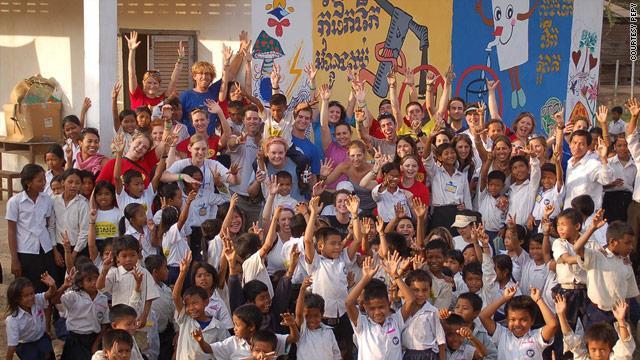 Showing up in parts unknown, hoping to make a big difference in a small amount of time, is likely to leave travelers and hosts disappointed.
Showing up in parts unknown, hoping to make a big difference in a small amount of time, is likely to leave travelers and hosts disappointed.
"You're not going to change the world in a week or two. You're not going to eradicate poverty in a village. You're not going to teach a kid how to read," said Doug Cutchins, a former Peace Corps volunteer and co-author of "Volunteer Vacations: Short-term Adventures That Will Benefit You and Others."
The key to having a positive impact in a short amount of time is realizing that your efforts are part of a process, Cutchins said. Results are subtle and come about slowly through a long line of volunteers.
"Development is a tricky process, and as Americans we are very, very product-oriented," he said.
He's concerned with what he calls "development by monument," where volunteers want a completed building or another physical representation of their volunteer efforts to answer the inevitable "what did you accomplish?" question from friends and family at home.
"That's one of the first questions you're going to get asked, and it's hard sometimes for people to say, 'well, I was kind of part of a process, and we engaged in cultural exchange.' But that's really the very best way to do it," Cutchins said.
Daniela Papi agrees. She is one of the founders of PEPY, a non-governmental organization dedicated to educational development in rural Cambodia. PEPY Tours hosts learning trips that help fund the group's projects.
The organization has gone from referring to those trips as "voluntourism" to calling them "edu-tourism" or "educational adventures."
"The number one thing that's going to happen is that you are going to have a new perspective on your country, on your life, on your choices and how they affect the world, on what it means to live in whatever country that is," Papi said.
The 10 days or so spent traveling and learning would ideally inform participants' choices and outlook at home, where they will have the largest impact, Papi said.
Teaching English and construction projects are the most common types of voluntourism projects Papi sees in her region. Travelers involved in a construction voluntourism project should ask the operator and organizations involved about the plans for the structure when the volunteers go home, she cautions. Who is going to take care of it, who will work in it, how will they be trained, and who will fund the training?
A poorly constructed school without trained teachers isn't likely to have the benefits volunteers envision. And in the case of teaching English, who will teach the children when there are no volunteers, and what effect does a revolving-door model of teaching have on kids?
Successful projects start with the needs of the community, voluntourism organizers say.
"We don't go in and say, 'this is what your problem is, and this is how we're going to fix it,' " said Catherine McMillan, a spokeswoman for Globe Aware, a nonprofit that develops short-term volunteer programs.
Members of the community should be involved in identifying and addressing areas where partner organizations can help.
The organization you're working with should have a strong and ongoing relationship with the community, local non-governmental organizations and project leaders on the ground.
"It's a complicated kind of tourism, because you don't want to send folks and do something and then not have, not measure the consequences of that action in the long term," said Erica Harms, director of the Tourism Sustainability Council, an initiative involving the United Nations and travel partners.
Travelers should ask about the program's history and its involvement with NGOs or other organizations. Find out where the funding is coming from and where it is being allocated. Ask about how the project is supported over time and how the community was involved in its development, Harms said.
And keep in mind that organizing volunteers to help support these efforts is not free. There are costs associated with housing and feeding volunteers, with transporting them locally, with training them and establishing a system of working that allows visitors to contribute for a short period.
Cutchins says reputable organizations will be up-front about costs, what is included and where your money will be spent.
Globe Aware's McMillan recommends looking up nonprofits on Guidestar.org, which compiles tax forms from nonprofits, to see how operators are spending. It's also a good idea to contact past volunteers or people who are familiar with the organization's work on site.
Travelers should be realistic about what would make for a positive experience and select opportunities that fit their skills and interests.
"I think there are very few people who would make really bad volunteers. ... It's really about matching the right person with the right opportunity," Cutchins said.
If you would like more information about taking a volunteer vacation to Costa Rica, Romania, Peru, China, India, or you are interested in voluntourism in another country or on another continent, please visit Globe Aware's Destinations Gallery for program and trip descriptions, dates and Minimum Contribution Fees.
Helping Hands: Globe Aware's Volunteer Vacations in Cambodia
By Nicolai Hartvig
 Cambodia is a remarkable destination to take a volunteer vacation. This South East Asian country’s natural, spectacular beauty and vibrant communities and people amaze Globe Aware volunteer vacationers.
Cambodia is a remarkable destination to take a volunteer vacation. This South East Asian country’s natural, spectacular beauty and vibrant communities and people amaze Globe Aware volunteer vacationers.
1 Help an Elephant
Lampang, Thailand
Sadly, many of Thailand’s gentle giants are likely to have painful memories. Caught in the wild, they’re often mistreated by their caretakers, who put them to work with adventure-trekking companies or performance troupes, or remove their tusks to sell as ivory on the black market.
THE TRIP The Thai Elephant Conservation Center (from Bt3,500 per person, plus tip for mahout) in Lampang province welcomes volunteers.
Activities depend on your choice of program: you may find yourself bathing a baby elephant, learning the skills of a mahout—a fully fledged elephant handler—or, if you stay overnight, guiding your elephant into the wilderness and leaving him at his favorite spot for the night while you retire to one of three wood-and-thatch houses. The center cares for around 50 elephants and has an on-site hospital, which program fees subsidize. T+L Tip: For your own relaxing soak, try the nearby San Kamphaeng hot springs.
2 Build Wheelchairs
Siem Reap, Cambodia
THE TRIP Week-long programs from Globe Aware (globeaware.org; US$1,200 per person excluding airfare) run in Siem Reap once or twice a month, from Saturday to Saturday. Itineraries are flexible, but volunteers can expect a plethora of activities: think putting together wheelchairs and hand-delivering them to landmine victims, working with local street children and teaching English to Buddhist novice monks. Cultural-awareness and cookery classes are also on offer, as well as built-in downtime—essential for checking out Siem Reap’s unmissable attractions, from the ruins at Angkor Wat to the stylish boutiques that have sprung up in the city center.
3 Teach English
Bangkok, Thailand
THE TRIP Staying in family-sized rooms provided by Cross Cultural Solutions (from US$2,784 for two weeks, excluding flights), volunteers work in local schools, community hubs and day-care centers. Children can help out as teacher’s aides—or simply play with and inspire confidence in other kids, especially those with disabilities who tend to be stigmatized in Thai society. After school, volunteers can soak up the local color, exploring Bangkok’s myriad temples, bazaars and food markets. They can also take their turn at being students, with Thai–cooking and language classes.
4 Spy on a Rhino
Tabin Wildlife Reserve, Borneo
THE TRIP On-the-ground info gathered on a trip with Hands Up Holidays (from US$3,750, excluding flights) will help protect these animals from extinction. An all-inclusive 15-day package has you and your family collecting invaluable survey data in Borneo’s Tabin Wildlife Reserve, home to an estimated 50 Sumatran rhinos, over three days. The rest of the time is spent on an action-packed jungle adventure, from white-water rafting in Kiulu to proboscis-monkey spotting in Sukau to a trek to the Lipad mud volcano. Jungle training and water sports also figure on the itinerary.
At night, you’ll be staying in three-star hotels, a jungle lodge and an island chalet. You’ll even get a chance to sleep under the stars, in open-air hammocks at a rainforest camp.
5 Journey with Nomads
Terelj National Park, Mongolia
THE TRIP Projects Abroad (US$3,045 for two weeks, discounts for children aged 15 or under) organizes tailored two-week–minimum trips in Mongolia’s Terelj National Park. Between travels on horse- or camel-back, volunteers may find themselves tending to animals, cooking Mongolian food from scratch, drinking traditional airaag, or fermented mare’s milk (kids can try the non-alcoholic kind), and even engaging in the odd bout of local wrestling. The remote locations and range of physical tasks on this trip make it better for smaller families with older children. Be prepared to soak in the silence and beauty of the vast, empty landscapes— and to receive your own Mongolian name.
If you would like more information about taking a volunteer vacation to Cambodia,China, India, Laos, Vietnam, Thailand, Nepal or you are interested in voluntourism in South East Asia, please visit Globe Aware's Destinations Gallery for program and trip descriptions, dates and Minimum Contribution Fees.
Page 8 of 16
